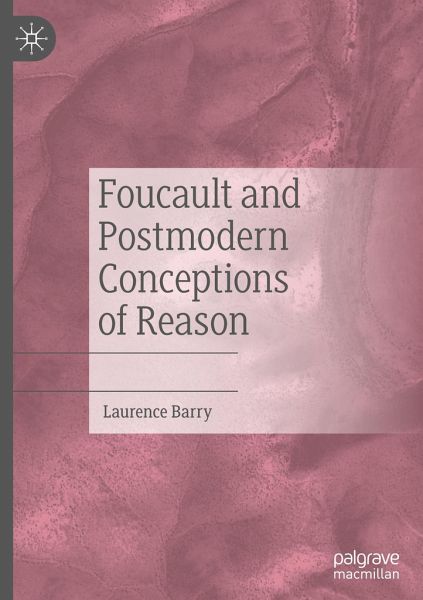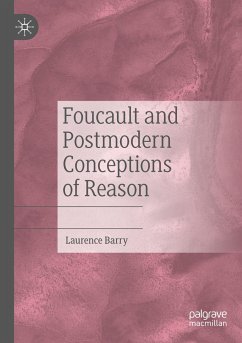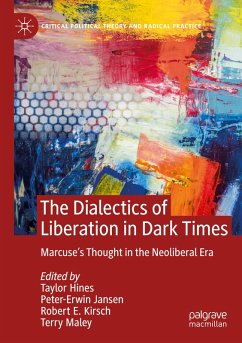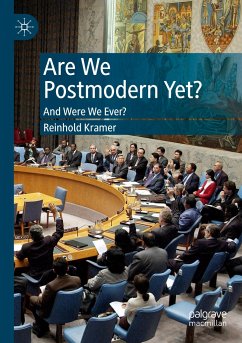
Foucault and Postmodern Conceptions of Reason
Versandkostenfrei!
Versandfertig in 6-10 Tagen
65,99 €
inkl. MwSt.
Weitere Ausgaben:

PAYBACK Punkte
33 °P sammeln!
For decades Foucault was mostly known for his diagnosis of modernity as a form of entrapment, both in our modes of thought and our behaviors. This book argues that Foucault's reappraisal of modernity occurs with the 1978 and 1979 lectures, in which he sketches modern power as governmentality and neoliberalism. From this perspective, Foucault's once surprising studies on the Greeks' constitution of the 'self' can be seen as a continuation of his diagnosis of late modernity, and as an attempt to retrieve a form of autonomy for our modern selves. One finds in the late Foucault a postmodern concep...
For decades Foucault was mostly known for his diagnosis of modernity as a form of entrapment, both in our modes of thought and our behaviors. This book argues that Foucault's reappraisal of modernity occurs with the 1978 and 1979 lectures, in which he sketches modern power as governmentality and neoliberalism. From this perspective, Foucault's once surprising studies on the Greeks' constitution of the 'self' can be seen as a continuation of his diagnosis of late modernity, and as an attempt to retrieve a form of autonomy for our modern selves. One finds in the late Foucault a postmodern conception of reason and not a destruction of reason; but this is possible only if postmodernity is seen as a critical exercise of reason in the analysis of norms.














